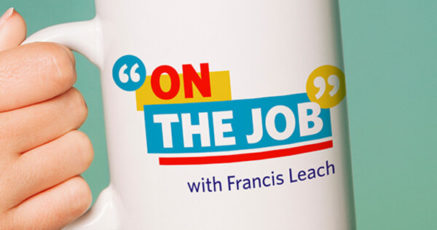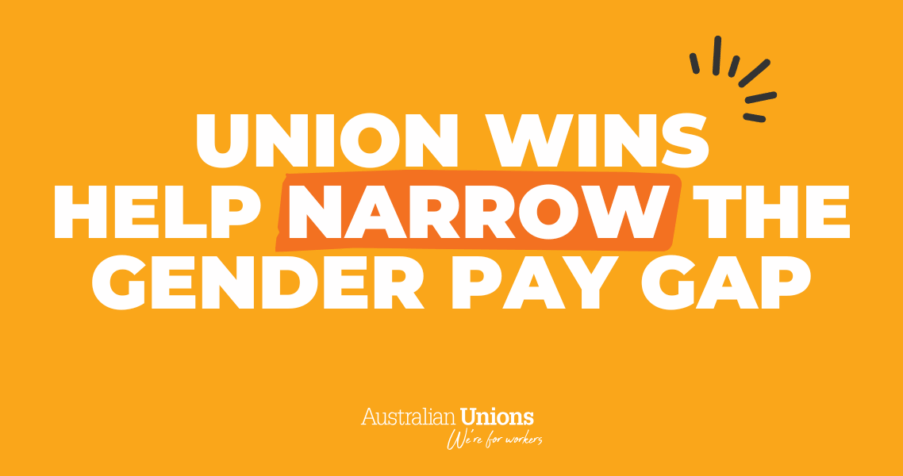The COVID-19 pandemic has taught us many things about Australia.
In these trying times, the curtain is pulled back to reveal who we really are as a nation and what we stand for.
It has shown us what we value, what our aspirations are, what we fear and what we are prepared to do for one another as a community to navigate a crisis, the likes of which we have not confronted in our lifetime.
It has brought to light the incredible devotion of frontline workers – health care professionals, cleaners, public transport workers, educators, retail and shop assistants and so many others – who have been prepared to front up day after day, putting their own health at risk so that our communities can still function.
These everyday Australians are the heroes of the pandemic, and it’s important that we remind ourselves that if not for them our cupboards would be empty, our streets and buildings dirty and dangerous, and our call for help when we need it would go unheard.
They are the very best of us.
The pandemic has also shone an unforgiving light on the conceits we can no longer deny, the lies we have told ourselves as a country that make us walk taller in the world but are self-serving fables rather than enduring truths.
One such is the ‘fair go’– the foundation myth of a nation built on the principles of egalitarianism, of no one being left behind.
The fair go is all but gone.
As workers and unionists, we’ve known this for a long time. We’ve watched successive neo-liberal governments dismantle Australia’s workplace protections, ostracise unions from workplaces, create an economy fueled by insecure work, and led unrelenting attacks on the social safety net that ensured dignity for one and all.
All of this has been true for a very long time, but whilst the rhythm of daily life carried on without the upheaval of a global pandemic, it was easy for the great inequity that is now at the heart of the Australian story to remain invisible.
Not anymore.
The COVID-19 pandemic is a biological crisis that can affect us all. But let’s be blunt – this is not a burden that is equally shared.
This pandemic is defined by privilege; where the working people in our large cities and towns are confronting the reality of infection hotspots and outbreaks, where their living conditions, the jobs they do, the choices they have to make to feed their families and loved ones mean they are caught in the crosshairs of the virus, more readily exposed to catching it and transmitting it to others.
In places such as the City of Wyndham in Melbourne’s west, or in Canterbury Bankstown and Blacktown in Sydney’s west, the rate of infection runs like wildfire.
These are communities of ordinary workers, many in insecure and casual work, working multiple jobs, often in a service economy that facilitates the comfortable lives of more affluent and well-off people in faraway suburbs.
It’s why people from Sydney’s west are perplexed and angry that their streets are patrolled by police and ADF members whilst the beautiful people of Bondi are free to go for a swim in the surf without any fear of a khaki-clad visitor telling them they need to clear the streets.
It seems it’s one rule for some, another for those doing it tough out west.
The final insult is the Government’s pursuit of JobKeeper payments from some workers who it claims have been overpaid during the pandemic, whilst it steadfastly refuses to ask big companies like Harvey Norman to repay JobKeeper payments it didn’t need and simply pocketed as profit.
In a re-run of its despised and catastrophic Robodebt program, the Morrison Government is once again going to punish the most vulnerable whilst running a green light for its rich mates to pay themselves bonuses and profits courtesy of your tax dollars.
The choice at the next election has been laid bare to all of us.
If we choose to ignore the yawning gap between the well-off and the vast majority of Australians who have been punished most by the pandemic, we will lock in an American-style economic caste system that we will never be able to dismantle.
On the other hand, if we decide that it’s time to end the age of affluence for the few being predicated on inequality for the many, we have a chance to revive the ideal of the fair go.
Australians of all walks of life deserve the opportunity to have a decent, secure job, with pay and conditions that allow them to live and work, with security and dignity.
If we’re serious about living up to our ideal of the fair go, we are going to have to fight for it, and it’s got to happen now.






SHARE:
The fair go is all but gone